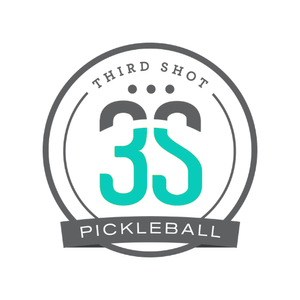In a previous article I challenged the idea that coaches should intervene as soon as they see their players doing something poorly. The thrust of my argument was that if coaches reflexively jump on the first “problem” they see, they may miss the opportunity to identify an even larger, more important area of concern. Additionally, at the beginning of a lesson players may be nervous and more likely to make uncharacteristic mistakes. So while the errors may be real and observable, there is good reason to believe that they may be more about the player's initial nerves than their playing skills.
But it is not only at the beginning of a lesson that coaches would be wise to keep quiet. In this article I want to explore another time that it makes sense for coaches to see something but say nothing.
Case Study: Sarah and Rick
Rick is an intermediate player who is looking to compete at the 3.5 level. He is taking a private lesson with the hopes of learning to hit a more consistent third shot drop that he can use against strong volleyers. His coach, Sarah, has observed Rick play and has identified that Rick’s big backswing is causing him to hit the drop too hard and high, making it ineffective.
Sarah explains her observations to Rick and they work on having him hit his drops with much less backswing. His drop is improving and they decide to put it back into a game situation to see if he can hit it under a bit more pressure. As he serves to start the first point, Sarah notices something: Rick’s swing when he serves isn’t very smooth. In fact, it is so jerky that it causes him to be inefficient and a little erratic.
Seeing this important problem, Sarah jogs over to the other side of the court and begins to help Rick with his serve. She talks to him about the importance of a smooth, relaxed swing and grabs the basket of balls so he can start practicing.
First Things First
I would argue that Sarah has made an important — and common — mistake. She was doing everything really well for most of the lesson: she identified the problem (a poor drop), found a helpful solution (reduce the backswing), practiced the new skill until it improved and then planned to put it back into a realistic situation. That’s great. But she made an error when she started working on Rick’s serve. The problem wasn’t that she saw his poor technique and judged it should be improved. The problem was that she allowed this observation the derail her otherwise great lesson.
Recall that Sarah was about to have Rick (hopefully) demonstrate his newly acquired skills. He was about to put his great new drop into action in a real game scenario. This is an important moment in the learning process as the added pressure of a game situation will give Rick and Sarah an idea as to whether he has really mastered this new skill or whether it requires more attention and practice. But by pouncing on the opportunity to improve Rick’s serve as soon as she saw the problem, she skipped the final step of the third shot drop lesson. Essentially, she moved on to a new teaching point before completing the process with the first one.
The scenario with Rick and Sarah is a common one. It is also worth remembering that Sarah did many things right in her lesson. The mistake was that in her eagerness to help her student, Sarah became impatient. She moved on from a teaching point before she had fully finished with it. In this case, Sarah would have been better off observing Rick’s troubled serve but saying nothing for the time being. Had she made a mental note of the new problem (or even written it down so she wouldn’t forget) she could have worked on his serve after finishing with the drop.
In this case, keeping quiet would have let her finish on task before setting off on another.
Mark Renneson has been coaching for 21 years and is the founder of Third Shot Sports. He competes at the 5.0/PRO level and tours North America delivering professional pickleball clinics, camps and private lessons to people of all ages and abilities. He can be reached by email at mark@thirdshotsports.com.

